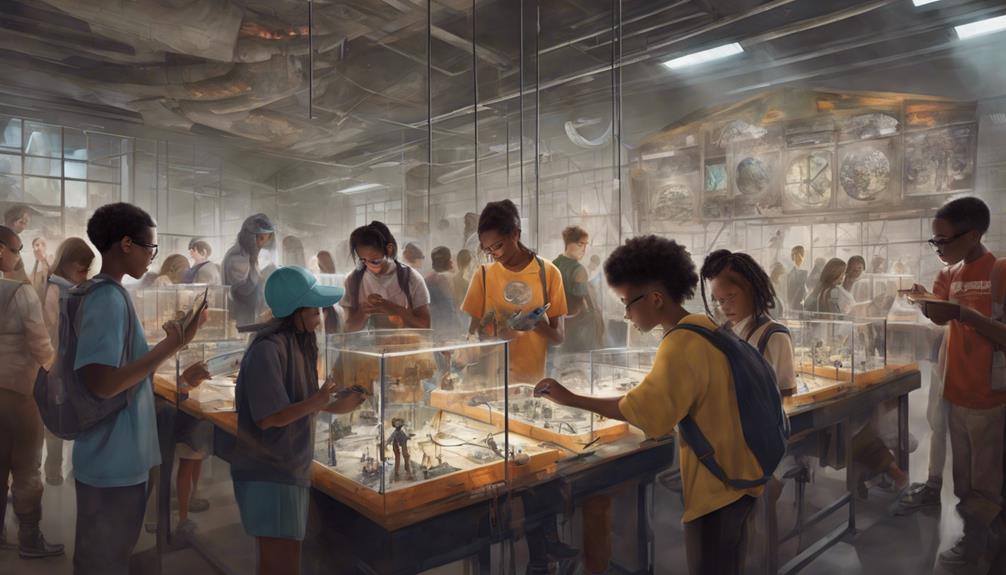Field trips serve as a crucial component of the educational experience, offering students a unique opportunity to bridge theoretical knowledge with practical application. By immersing learners in real-world settings, field trips not only reinforce classroom teachings but also stimulate critical thinking and problem-solving skills. The hands-on nature of these excursions allows students to engage with material in a tangible way, fostering a deeper understanding of complex concepts. However, the true value of field trips lies in their ability to…
Key Takeaways
- Field trips provide hands-on learning experiences that reinforce classroom concepts.
- They foster cultural understanding, empathy, and appreciation through diverse experiences.
- Field trips enhance critical thinking skills by connecting theory to real-life applications.
- They inspire lifelong learning habits, creativity, and a love for exploration and discovery.
Benefits of Hands-On Learning
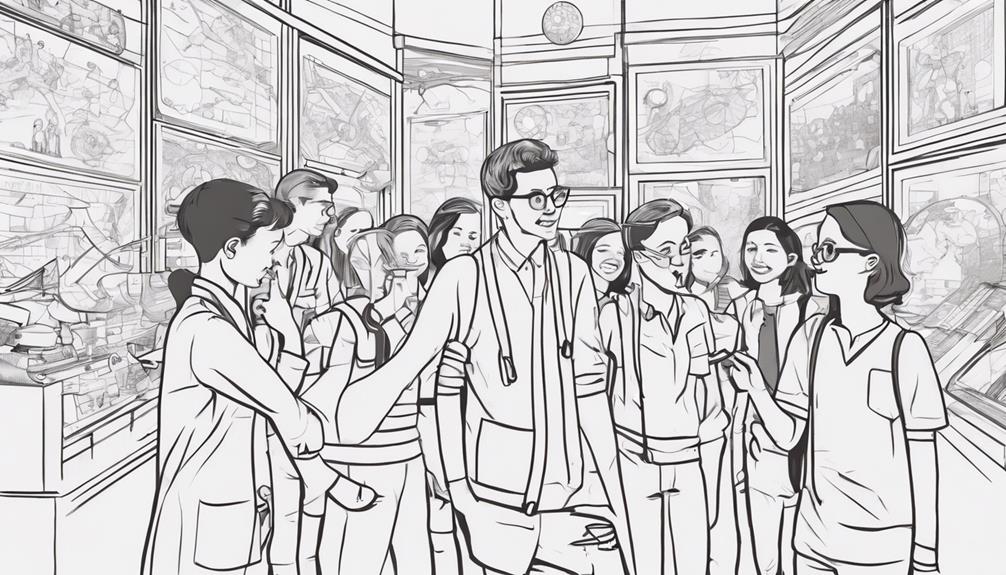
Hands-on learning during field trips offers a multifaceted approach to education, catering to diverse learning styles and enhancing academic outcomes for students. Field trips provide a unique learning experience outside the traditional classroom setting, allowing students to engage with educational concepts in a hands-on and interactive way. Research has shown that this experiential learning approach is highly effective in improving grades and increasing graduation rates for students at both the high school and college levels.
During field trips, students have the opportunity to apply theoretical knowledge to real-world situations, reinforcing classroom concepts and enhancing their understanding of the subject matter. By experiencing educational content in a practical context, children are better able to retain information and develop a deeper level of comprehension. This hands-on learning experience not only boosts academic performance but also fosters social development through collaborative activities, promoting teamwork and communication skills among students. Overall, field trips play a crucial role in igniting curiosity, sparking interest in learning, and enriching the educational journey of young learners.
Reinforcing Classroom Concepts
Field trips serve as a valuable tool for reinforcing classroom concepts by providing students with real-world applications and examples that bridge theoretical knowledge with practical experiences. When students step out of the classroom and into the field, they can witness firsthand how the concepts they learn about in textbooks manifest in real life. This hands-on approach solidifies their understanding and retention of academic lessons. By visiting relevant destinations like museums, laboratories, or historical sites, students are immersed in enriching field trips that offer a deeper insight into various subjects.
To further illustrate the significance of field trips in reinforcing classroom concepts, the table below outlines the benefits of these educational excursions:
| Benefits of Field Trips | Description | Example |
|---|---|---|
| Connecting Theory with Practice | Demonstrating how theoretical knowledge applies in real-world scenarios. | Visiting a science museum to see physics principles in action. |
| Enhancing Understanding and Retention | Improving comprehension and memory of academic lessons through experiential learning. | Exploring historical sites to grasp the impact of past events. |
| Making Learning Tangible and Engaging | Turning abstract concepts into tangible experiences, making learning more interactive and fun. | Participating in a nature hike to understand ecosystem dynamics. |
Enhancing Social Development Skills
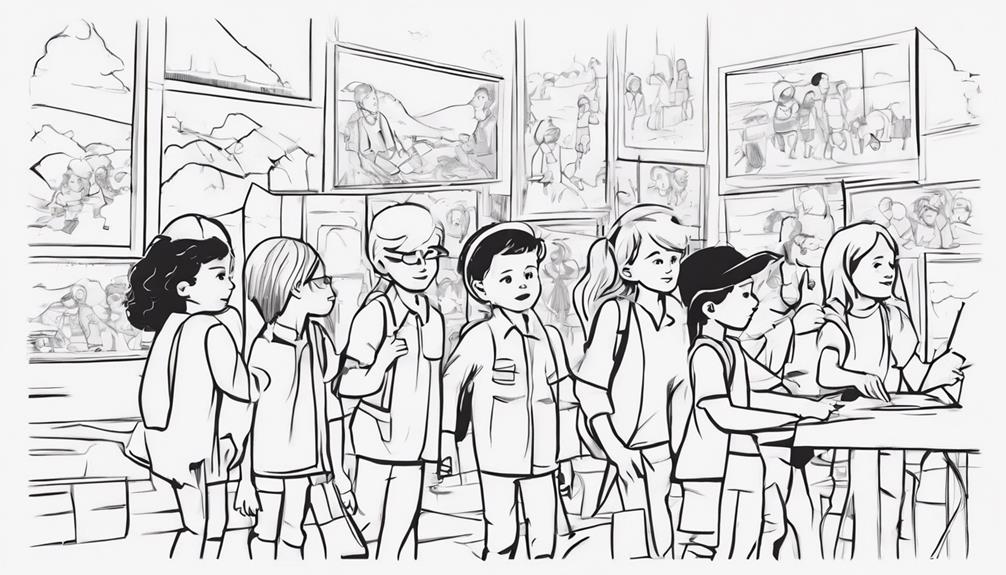
Engaging in educational field trips has been shown to significantly enhance students' social development skills through various experiential learning opportunities. Field trips promote collaboration and teamwork among students as they engage in shared experiences and activities. By navigating diverse environments and cultures during these trips, children develop empathy and understanding towards others, contributing to their social development skills. Furthermore, students have the chance to enhance their communication skills during field trips by interacting with peers, teachers, and tour guides in new settings.
Moreover, field trips encourage the development of problem-solving and decision-making skills as students navigate unfamiliar surroundings and situations. These experiences outside the classroom environment also foster the formation of social bonds and friendships among children. By participating in field trips, students not only expand their knowledge but also strengthen their social development skills through practical experiences that promote collaboration, communication, empathy, and problem-solving.
Fostering Curiosity and Exploration
Stimulating children's innate curiosity and fostering a spirit of exploration are key objectives achieved through participation in educational field trips. By immersing children in new environments and experiences, field trips provide hands-on learning opportunities that spark interest in a variety of subjects. Real-world exploration during these trips ignites children's imaginations, prompting them to ask questions and seek out knowledge independently.
Field trips offer a unique setting for active engagement with the world, allowing children to discover new interests and passions that may not have been evident in traditional classroom settings. Through these experiences, children are encouraged to explore their surroundings, observe the world around them, and make connections between classroom learning and real-world applications. This exposure to diverse environments fosters a sense of wonder and curiosity, motivating children to delve deeper into their surroundings and engage in meaningful learning experiences outside the confines of a textbook.
Experiencing Diverse Cultures

Experiencing diverse cultures through field trips offers numerous educational benefits such as promoting cultural understanding, tolerance, and empathy in students. Exposure to different traditions and global perspectives during these trips helps broaden students' horizons and deepen their appreciation for the world's diversity. By immersing students in various cultures, field trips play a crucial role in fostering social awareness, acceptance of differences, and igniting curiosity and a sense of adventure in young learners.
Cultural Immersion Benefits
Field trips that incorporate cultural immersion provide students with invaluable exposure to a diverse array of traditions, beliefs, and practices. This form of experiential learning enhances students' understanding of cultural diversity, promoting empathy and appreciation for global perspectives. Through firsthand experiences, students develop tolerance and respect for cultural differences, fostering a sense of inclusivity and celebration of diversity. Exposure to diverse cultures during field trips not only enriches students' awareness of the world's richness but also encourages them to embrace inclusivity. By engaging with different cultural practices, students gain a deeper insight into the complexities of our global society, preparing them to navigate a world that is increasingly interconnected and diverse.
Exposure to Traditions
Through firsthand exposure to a variety of traditions and customs, field trips offer students a unique opportunity to deepen their understanding and appreciation of diverse cultures. Field trips boost cultural enrichment by allowing students to witness traditions, customs, and practices of different communities. This direct experience broadens their perspectives, fostering empathy and tolerance towards cultural differences. By immersing themselves in the rich cultural heritage of various societies, students develop a greater awareness of global diversity. Exposure to traditions on field trips not only educates students about different cultures but also instills in them a sense of respect and curiosity for the world around them. Overall, field trips play a crucial role in shaping students into culturally sensitive and globally aware individuals.
Understanding Global Perspectives
Encountering a diverse array of cultures during educational outings facilitates the development of global perspectives among students.
Key Points:
- Empathy and Cultural Understanding: Experiencing diverse cultures through field trips fosters empathy and cultural understanding among students.
- Broadened Perspectives: Field trips provide firsthand exposure to different traditions, languages, and lifestyles, broadening students' global perspectives.
- Tolerance and Appreciation: Students who engage in multicultural field trips develop tolerance and appreciation for diverse communities.
Through cultural immersion on field trips, students not only recognize similarities and differences but also gain a deeper respect for varying perspectives. This exposure to global viewpoints helps students understand the interconnected nature of our world, promoting a more inclusive and informed society.
Immersive Learning Opportunities
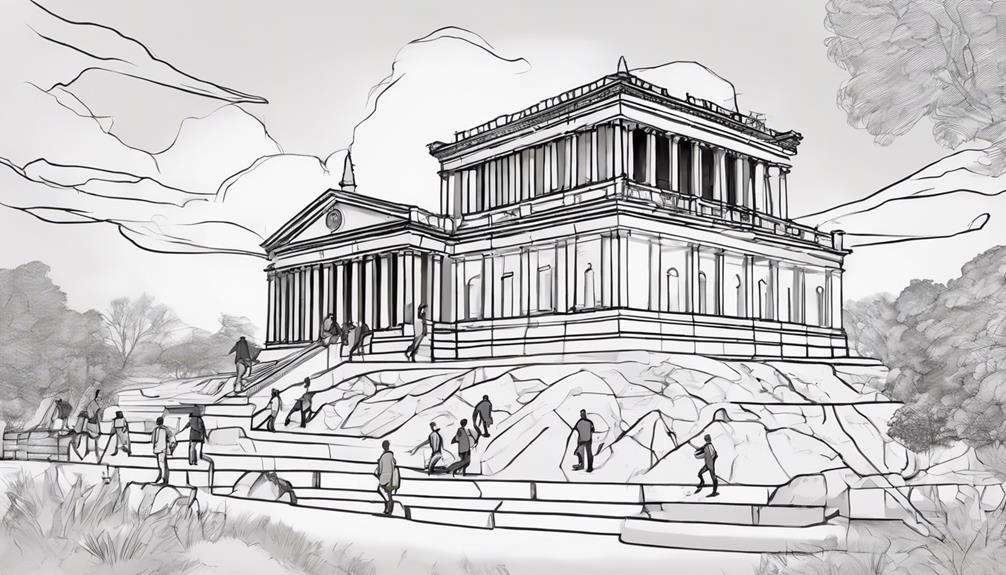
Immersive learning experiences outside traditional classroom settings provide students with invaluable opportunities to engage directly with real-world environments, thereby deepening their understanding of academic concepts. Field trips offer hands-on experiences that cater to diverse learning styles by allowing students to interact with the subject matter in a tangible way. By immersing themselves in these experiences, students can apply theoretical knowledge to practical situations, fostering critical thinking skills and a deeper comprehension of the material.
These immersive learning opportunities go beyond textbooks and lectures, offering students the chance to see, touch, and experience the concepts they are learning about. This firsthand experience not only brings academic concepts to life but also stimulates curiosity and creativity. Students are encouraged to ask questions, make connections between theory and practice, and think critically about the world around them. Through field trips, students develop a holistic understanding of the subject matter, enhancing their overall learning experience.
Encouraging Critical Thinking Skills
Field trips serve as catalysts for fostering critical thinking skills in students through hands-on exploration of real-world scenarios and problem-solving activities.
- Promoting Analytical Thinking: Field trips engage students in activities that require them to analyze information, draw conclusions, and make decisions based on evidence. This process enhances their ability to think critically and logically.
- Encouraging Creative Problem-Solving: By exposing students to new environments and challenges, field trips encourage them to think creatively in order to overcome obstacles. This stimulates their problem-solving skills and helps them develop innovative solutions.
- Applying Classroom Knowledge: Field trips provide students with opportunities to apply the knowledge they have acquired in the classroom to practical situations. This hands-on experience not only reinforces their learning but also requires them to think critically about how to adapt their knowledge to real-world scenarios.
Building Teamwork and Communication
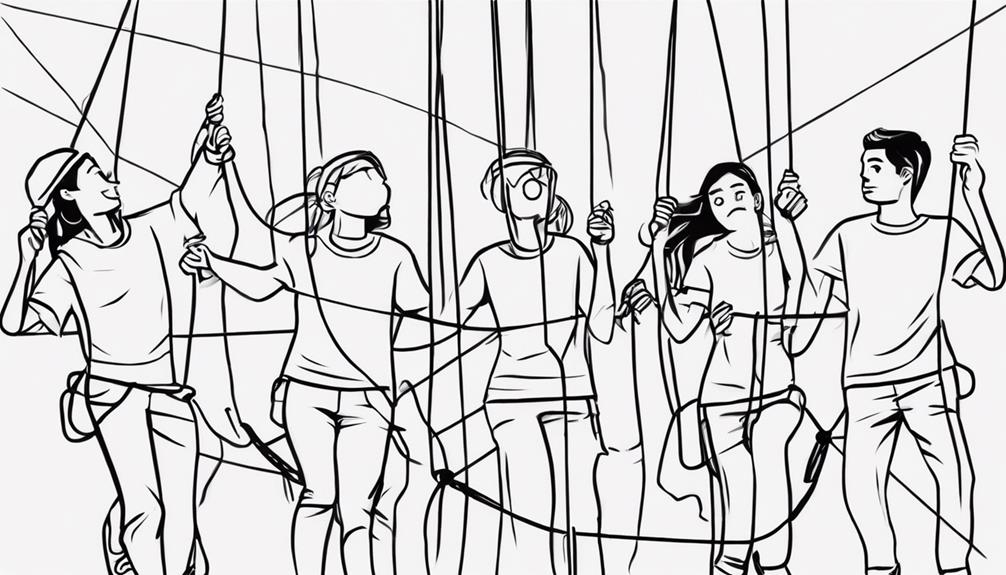
During field trips, students have the opportunity to enhance their teamwork and communication skills through engaging in collaborative activities and interactions with their peers and teachers. These experiences promote teamwork by requiring students to work together to solve problems, complete tasks, and navigate unfamiliar environments. By participating in group activities such as team challenges or group projects, students learn to communicate effectively with their peers and teachers, sharing ideas, listening to others, and resolving conflicts constructively.
Moreover, collaborative experiences during field trips help students develop essential interpersonal skills such as active listening, empathy, and cooperation. Team building activities organized during field trips foster a sense of unity and cooperation among students, encouraging them to support each other and work towards common goals. Effective communication and teamwork are crucial life skills that can be honed through field trip experiences, preparing students for future academic and professional endeavors where collaboration and effective communication are paramount.
Connecting Theory to Real-Life Applications
Field trips serve as a conduit for students to witness the practical application of theoretical concepts learned in the classroom. By engaging in real-world scenarios, students can gain a deeper understanding of abstract ideas and see how they manifest in everyday life. This hands-on approach helps students grasp the relevance and significance of academic knowledge beyond the confines of textbooks.
Theory in Practice
Connecting theoretical concepts to practical applications is essential for fostering a deeper understanding of academic knowledge. Field trips serve as a vital component in bridging this gap by immersing students in real-life scenarios. Here's how theory in practice during field trips enhances the learning environment:
- Hands-On Learning: Field trips provide students with tangible experiences to apply theoretical knowledge, making learning more interactive and engaging.
- Relevance: Students can see firsthand how theories and concepts learned in the classroom are applied in real-world situations, enhancing their understanding and appreciation for the subject matter.
- Critical Thinking: Engaging in real-life experiences during field trips encourages students to think critically, analyze situations, and apply theoretical frameworks to practical scenarios, fostering a holistic approach to learning.
Real-world Learning
Real-world learning plays a pivotal role in reinforcing the connection between theoretical knowledge and its practical applications, enriching students' educational experiences. Field trips offer students the opportunity to experience and learn outside the confines of the classroom, providing a hands-on approach to education. The following table illustrates how real-world learning on field trips enhances students' understanding and critical thinking skills:
| Benefits of Real-World Learning on Field Trips | |
|---|---|
| 1. Application of Knowledge | Field trips allow students to apply classroom learning to real-life situations. |
| 2. Personal Development | Students experience different environments, fostering personal growth and self-awareness. |
| 3. Critical Thinking | Observing real-world problems encourages students to think critically and creatively. |
| 4. Hands-On Learning | Access to unique tools and environments provides practical, hands-on experiences supporting academic concepts. |
Application of Knowledge
Enhancing students' comprehension and practical skills, the application of knowledge from classroom learning to real-life situations is a fundamental aspect of educational development.
Trip Benefits:
- Field trips allow students to directly apply theories learned in the classroom to practical scenarios, reinforcing their understanding of complex concepts.
- Students can witness firsthand how academic knowledge is utilized in real-world settings, making learning more tangible and relevant.
- By participating in field trips, students bridge the gap between theoretical knowledge and practical applications, gaining a deeper appreciation for the significance of their studies in everyday life.
Broadening Perspectives and Understanding
Exposure to diverse cultures through field trips plays a crucial role in expanding students' perspectives and fostering a deeper understanding of societal differences. Field trips provide students with the opportunity to engage with various customs, traditions, and ways of life different from their own. These experiences offer a firsthand look at the richness of human diversity, helping students appreciate and respect cultural differences.
By immersing themselves in new environments during field trips, students are encouraged to see the world from different viewpoints. This exposure enhances their cultural awareness and sensitivity towards others. Interacting with diverse communities during these trips promotes inclusivity and understanding, laying the foundation for a more tolerant society.
Through cultural field trips, students not only learn about different cultures but also develop empathy and respect for varying societal norms. The hands-on experiences gained during these excursions leave a lasting impact on students, shaping them into more open-minded and globally aware individuals.
Developing Empathy and Cultural Awareness
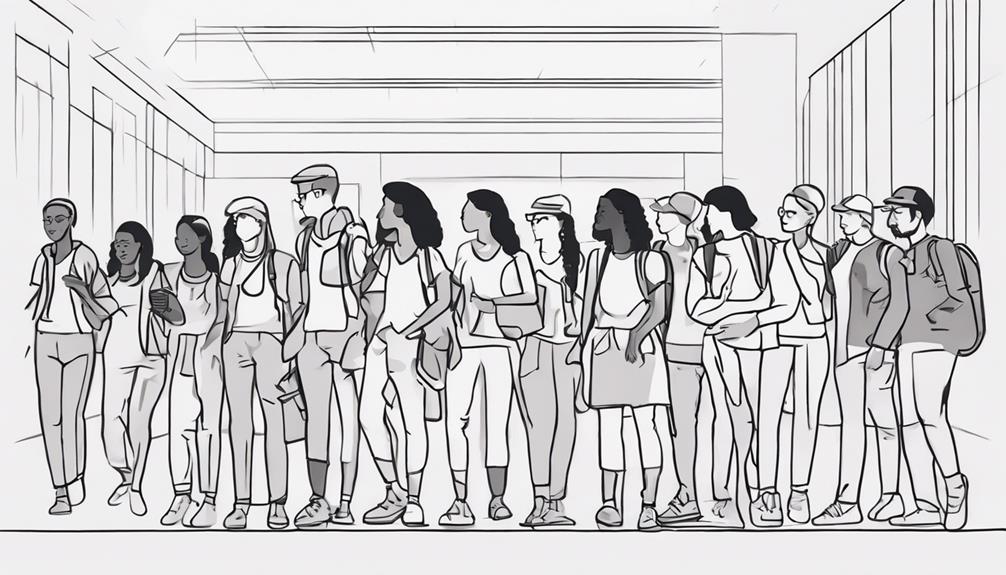
Field trips provide students with firsthand experiences that cultivate empathy by allowing them to see the world from different perspectives. Understanding diverse cultures and backgrounds through these experiences helps foster appreciation for the richness of human diversity. By engaging with new environments and cultural practices, students develop a deeper sense of empathy and awareness of the world around them.
Empathy Through Experiences
Developing empathy and cultural awareness in students is facilitated through experiential learning opportunities that expose them to diverse environments and perspectives, fostering socio-emotional growth.
- Increased Understanding: Encountering different cultures and perspectives during field trips allows students to gain a deeper understanding of the world around them, leading to increased empathy and cultural awareness.
- Personal Connections: Engaging with real-world experiences outside the classroom setting enables students to establish personal connections with people from diverse backgrounds, nurturing empathy and tolerance.
- Promotion of Critical Thinking: Field trips challenge students to think critically about unfamiliar situations, fostering empathy as they consider alternative viewpoints and experiences.
Understanding Diverse Perspectives
Encountering diverse perspectives and experiences during educational outings plays a crucial role in nurturing empathy and cultural awareness among students. Through field trips, students gain firsthand exposure to different traditions, customs, and ways of life, which fosters an appreciation for cultural diversity. This exposure helps students develop empathy by understanding and respecting the experiences of others, leading to increased tolerance and acceptance. By interacting with individuals from various backgrounds, students enhance their social skills and build meaningful relationships. Understanding diverse perspectives on field trips encourages students to adopt a more open-minded and empathetic outlook, shaping them into globally aware and culturally sensitive individuals.
| Benefits of Understanding Diverse Perspectives |
|---|
| – Fosters empathy and cultural awareness |
| – Promotes tolerance and respect for diversity |
| – Enhances social skills and relationships |
| – Cultivates open-mindedness |
| – Shapes globally aware individuals |
Fostering Cultural Appreciation
Exposure to diverse cultures and perspectives through educational outings fosters a deeper sense of empathy and cultural awareness among students. This process of cultural appreciation and understanding is essential for developing respect and tolerance in a globalized world. To achieve this, field trips play a crucial role by:
- Encouraging students to embrace diversity and value different cultural backgrounds.
- Providing opportunities for students to engage with unfamiliar traditions and customs, promoting a sense of inclusivity.
- Cultivating empathy by immersing students in unique cultural experiences, helping them recognize and appreciate the richness of human differences.
Through these experiences, students learn to respect and celebrate the varied tapestry of cultures that shape our society, ultimately fostering a more harmonious and interconnected world.
Inspiring Lifelong Learning Habits
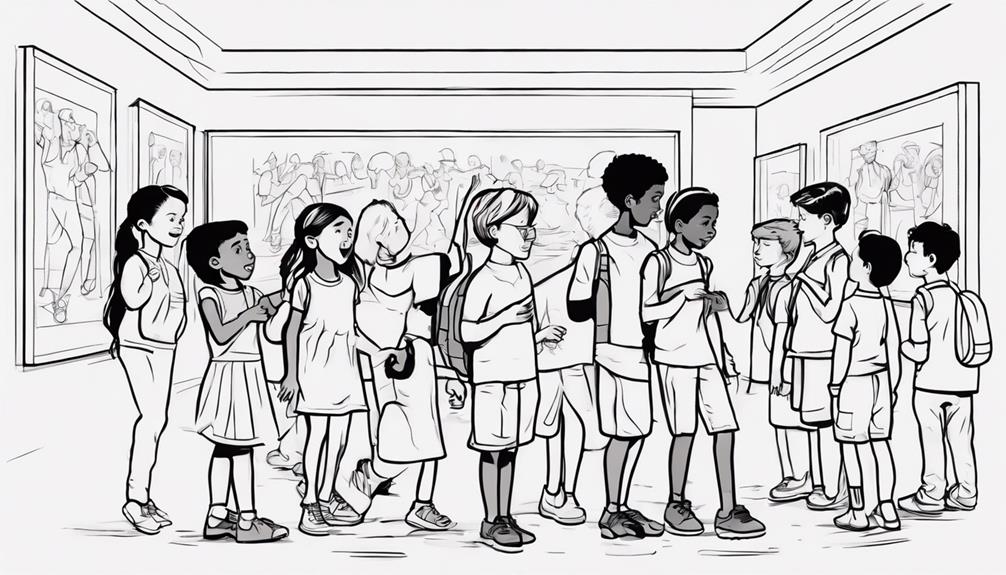
Field trips serve as catalysts for instilling enduring habits of lifelong learning among students by immersing them in hands-on, real-world experiences that transcend traditional classroom boundaries. These excursions are pivotal in engaging students through interactive encounters that stimulate their curiosity and foster a love for learning outside the confines of a textbook. By providing a platform for exploration and discovery, field trips encourage students to make connections between theoretical knowledge and practical applications in the real world, laying the foundation for a lifelong pursuit of knowledge.
Through the experiential nature of field trips, students are prompted to think critically, analyze information, and develop a deeper understanding of various subjects. This active learning approach not only ignites curiosity and imagination but also instills a passion for learning that can endure over time. By offering opportunities for hands-on experiences and exposure to diverse environments, field trips play a vital role in shaping students into lifelong learners who seek continuous growth and knowledge acquisition beyond the classroom setting.
Stimulating Sensory Experiences
Immersing students in sensory-rich environments during educational excursions enhances their understanding of concepts through real-world sensations, fostering a holistic and engaging learning experience.
Key Points:
- Engagement of All Senses: School field trips provide opportunities for students to touch, hear, see, smell, and even taste elements related to their learning, activating all five senses simultaneously.
- Deeper Understanding: Stimulating sensory experiences on these trips help bridge the gap between abstract concepts taught in classrooms and concrete real-world applications, allowing students to grasp ideas more profoundly.
- Enhanced Learning and Retention: By engaging different parts of the brain through sensory-rich environments, field trips create lasting memories and improve retention of information compared to traditional classroom settings.
Incorporating stimulating sensory experiences into school field trips not only makes learning more enjoyable but also facilitates a more comprehensive understanding of the subject matter. This approach caters to diverse learning styles, ignites curiosity, and nurtures a deeper connection with the world around us.
Promoting Active Engagement and Participation
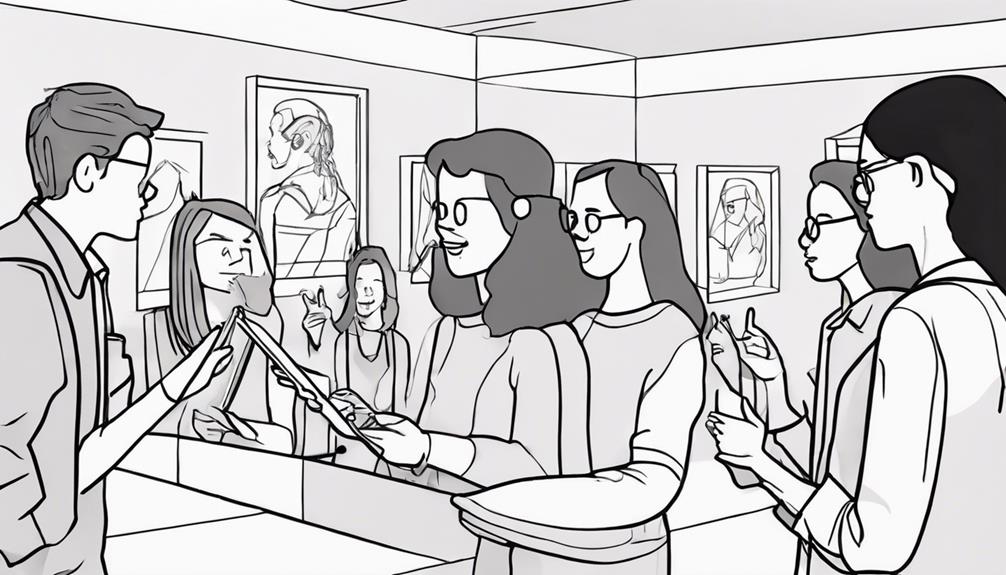
Encouraging active engagement and participation among students is fundamental in maximizing the educational benefits derived from field trips. Field trips offer a unique opportunity for students to interact with real-world environments, fostering active participation that enhances learning retention and understanding. By engaging in hands-on activities during field trips, students undergo experiential learning, honing their critical thinking skills in the process. The active exploration of field trip destinations encourages students to ask questions, make connections to classroom lessons, and delve deeper into the subject matter. This deep engagement leads to a more profound understanding of concepts and stimulates curiosity and creativity among students.
| Benefits of Promoting Active Engagement and Participation | |
|---|---|
| Enhances learning retention | Fosters critical thinking skills |
| Encourages asking questions | Facilitates making connections |
| Stimulates curiosity and creativity | Promotes deeper understanding |
Frequently Asked Questions
Are Field Trips Supposed to Be Educational?
Field trips are indeed intended to be educational, offering engaging experiences and hands-on learning opportunities. They serve to provide students with practical applications of classroom concepts, fostering a deeper understanding of subjects. By venturing outside the classroom, students are exposed to real-world scenarios that encourage critical thinking and problem-solving skills. Field trips are an essential component of education as they offer unique learning experiences that complement traditional teaching methods.
What Are 3 Educational Benefits of Taking Students on a Field Trip?
Improved learning, hands-on experience, and increased engagement are three key educational benefits of taking students on a field trip. Research shows that students who participate in field trips demonstrate improved retention of information due to real-world application. Additionally, hands-on experiences during field trips allow students to engage with the material in a tangible way, fostering a deeper understanding of concepts. Such experiential learning opportunities are vital for enhancing educational outcomes and student success.
Why Do Field Trips Remain an Important Part of an Early Childhood Curriculum?
Field trips remain an essential component of early childhood curriculum due to their ability to provide hands-on learning experiences and real-world application. These excursions engage young learners in experiential education, reinforcing classroom concepts in a practical setting. By encouraging active participation and exploration, field trips promote curiosity and foster a deeper understanding of the world around them. Such experiences are invaluable in enhancing the educational journey of young children.
What Is the Concept of Field Visit?
Field visits encompass outdoor exploration and hands-on learning experiences that foster real-world connections and experiential education. These trips immerse students in practical settings, allowing them to apply classroom knowledge in tangible ways. By engaging in field visits, students gain a deeper understanding of concepts through direct interaction, promoting critical thinking and cultural awareness. This concept of field visits bridges the gap between theoretical learning and real-life applications, enhancing the overall educational experience.
Conclusion
In conclusion, field trips offer a multifaceted educational experience that goes beyond traditional classroom learning. By providing hands-on experiences, fostering social skills, and promoting curiosity and empathy, field trips play a crucial role in shaping students' academic and personal growth. These experiences stimulate sensory engagement, promote active participation, and inspire lifelong learning habits. Field trips are a vital component of education, enriching students' minds and broadening their horizons in a way that no textbook can replicate.
